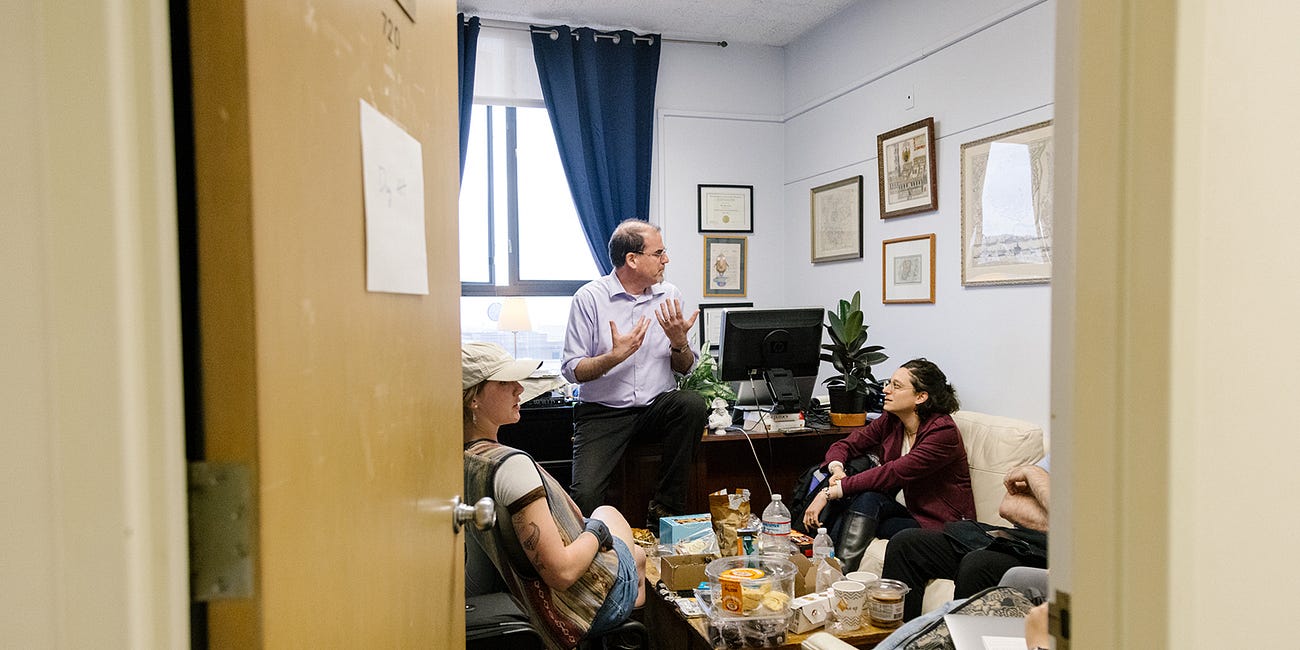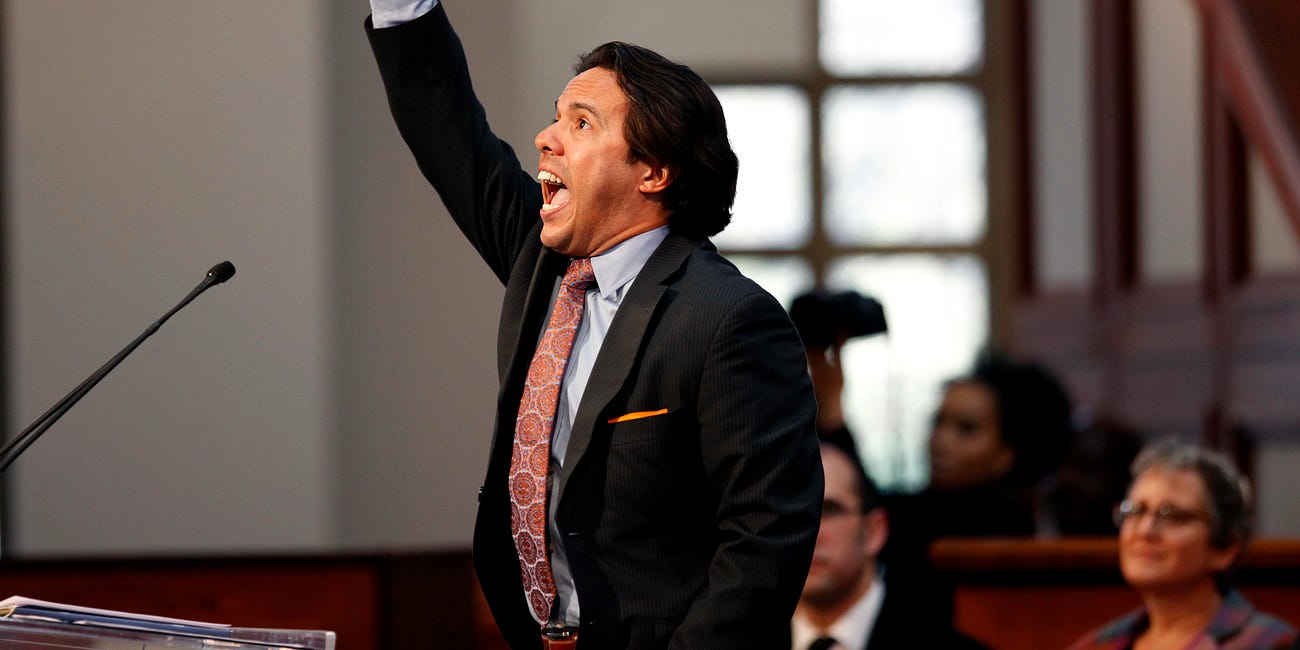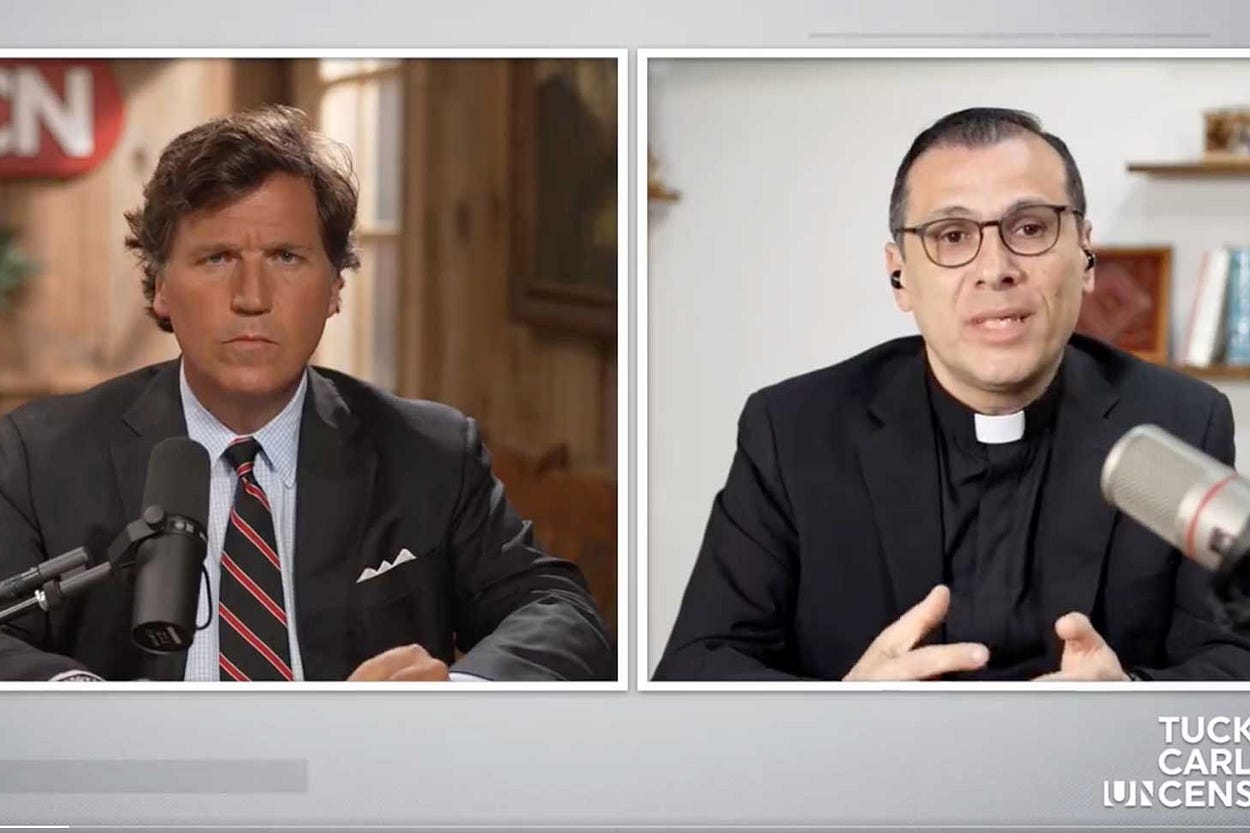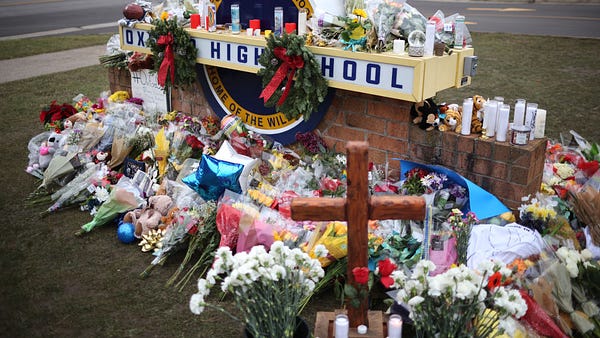
The Free Press

“Bring Febreze.”
That was the advice Berkeley professor Ron Hassner gave our reporter ahead of her visit to his office earlier this week. That’s because Hassner has not showered in seven days—indeed he has not left his office at all, teaching, eating, working, and sleeping from the seventh floor of the social sciences building.
“I am a scholar. I don’t believe in activism,” he said. But he felt no other choice in the wake of a riot for which, so far, no one has been punished.
Anti-Israel protests exploded on Berkeley’s campus after October 7, making the environment “uncomfortable, ostracizing, and isolating” for Jewish students. Then, on February 26, things turned violent when pro-Palestine students started a riot at an event featuring an Israeli lawyer.
“I saw my friend get spat at and called a dirty Jew,” said one eyewitness. “They shouted at us that we were pigs. They were violent with some of us: two girls got assaulted, they ended up shattering the windows.”
“This is a campus known for its protest,” Hassner says. “Put up propaganda! Hang it everywhere! But don’t physically block students from walking. Don’t harass them. Please don’t strangle them. I think it’s possible to advocate for the Palestinian cause without strangling people.”
Join Julia Steinberg in Ron Hassner’s office, which he says he won’t leave until the university takes long-overdue action needed to make Jewish students feel safe again. He expects he may be there some time.
For more on the hate at Berkeley, read Greg Lukianoff and Angel Eduardo: “If Berkeley Wants to Protect Free Speech, It Will Expel Its Rioters.”
Ten Stories We’re Reading
Epidemiologist Martin Kuldorff says he was fired from Harvard over his opposition to vaccine mandates. (City Journal)
Don Lemon says Elon Musk canceled his deal with X after they recorded an interview. Lemon’s spokesman said that if X doesn’t pay up, they’ll see the company in court. (Instagram)
Legislation to force the sale of TikTok passed the House 352–65. The White House urged the Senate to vote on the bill “very quickly.” (Politico)
Leonid Volkov, the former chief of staff to Alexei Navalny, was attacked near his home in Lithuania. An assailant smashed the window of Volkov’s car, sprayed tear gas into his eyes, and hit him with a hammer. (AP)
Both Biden and Trump risk “blowing up” U.S. debt, warned Harvard economist Ken Rogoff. He also called the pair “certainly the two most protectionist presidents in a long time.” (Bloomberg)
A Georgia judge has thrown out six counts of Trump’s election interference indictment. Will Fani Willis be removed from the case? (ABC)
Biden has seen no polling bump after his State of the Union. (The Hill)
With the world focused on the Houthis, Somali pirates are back. (FT)
Phones are hostile to human development, writes Jonathan Haidt. (The Atlantic)
Twenty-nine percent of Gen Z women identify as LGBTQ+. The figure for millennial women is 12 percent. (Gallup)
The Rise of the Latino Evangelicals
In recent years, Latino voters have confounded expectations. Long taken for granted as a solidly Democratic voting bloc, they have instead shifted rightward. One recent poll showed Donald Trump leading Joe Biden among Latino voters. But voting preferences are just one area where Latinos have been misunderstood.
Another is religion. Latinos, who make up 20 percent of the U.S. population, aren’t homogeneously Catholic. As Marie Arana shows in her new book, LatinoLand: A Portrait of America’s Largest and Least Understood Minority, this group is increasingly driving America’s evangelical movement. Estimates show that by 2030, half of U.S. Latinos will identify as Protestant evangelicals who actually lean right—a shift that will shape voting patterns for decades to come.
In an exclusive excerpt from LatinoLand, Arana shows why this change is happening and who is fueling it: a new generation of Pentecostal leaders—men who were born to Hispanic immigrants or who even migrated themselves from south of the U.S. border.
Give Stephen Glass a Break
An off-Broadway musical has found success in rehashing the story of Stephen Glass, the journalist who was disgraced in the 1990s for fabricating dozens of stories at The New Republic. Joe Nocera argues we should give the guy a break.
The Connector, an off-Broadway musical, is closing this Sunday, and I can’t say I’m sorry to see it go. I went a few weeks ago because Jason Robert Brown, one of my fave composers, wrote the music and lyrics, and because my friend Jessica Molaskey, the singer and actor, has a prominent role.
They didn’t disappoint. So why did I leave the theater with a sour taste in my mouth? Because the story is about a young journalist, working at a small but influential publication, who writes a series of articles that knock the socks off the magazine’s editor but turn out to be fabricated. In other words, nearly three decades after the Stephen Glass scandal rocked journalism, his sad tale is being repurposed again.
Enough already.
There’s no excusing what Glass did. As a young staff writer at The New Republic in the mid-1990s, Glass wrote some 42 stories that were either partly or wholly made up. When he was drummed out of the profession, I applauded. What’s hard to fathom is why, of all the journalistic fraudsters over the past decades, his is the story that just won’t go away.
It’s been told in Vanity Fair, and in the 2003 movie Shattered Glass. When Glass tried to gain admission to the California bar in 2010 (the California Supreme Court ultimately denied his application), it generated a whole new round of nasty stories, with the press critic Jack Shafer calling him “a whiny excuse-maker.” When The New Republic celebrated its 100th anniversary in 2014, it sent Hanna Rosin, once a close friend, to interview Glass and retell the sordid tale. Just last year, Washingtonian magazine ran an “oral history” of the making of Shattered Glass. I mean, seriously?
And now, with The Connector, we have Stephen Glass: The Musical. What the show leaves out—what just about everybody leaves out—is the exemplary life Glass has led since leaving journalism. After the scandal, one of the few people who gave him a helping hand was a personal injury lawyer named Paul Zuckerman, who, after first tossing Glass’s résumé in the trash, decided to give him a second chance.
Glass has served as a law clerk for Zuckerman ever since. Zuckerman has a lot of indigent and homeless clients—and Glass is the one who helps them through the legal process. In its otherwise harsh decision, the California Supreme Court was forced to concede that Glass was “an employee who conducted excellent legal research, was assiduous and hyper-scrupulous about honesty, and stopped to think about ethical issues.”
Glass committed his fraud when he was in his mid-20s. He was 42 when California refused to admit him to the bar. A few years later, he paid $200,000 to The New Republic and the other magazines as a form of restitution. For much of his 40s, he cared for his wife, who died of early onset Alzheimer’s. The guy has not had an easy life.
We like to think of ourselves as a nation that believes in redemption. Michael Milken is today a “philanthropist” instead of a convicted felon. (Also: Donald Trump pardoned him.) After doing time for insider trading, Martha Stewart is a national treasure. The quarterback Michael Vick was convicted of running a dog-fighting ring—and became the NFL’s comeback player of the year after he got out of prison. The 1969 Chappaquiddick scandal hung over Ted Kennedy for years, but by the time of his death in 2009, he was heralded as a great statesman. Like these bad actors, Stephen Glass deserves a second act that trumps the terrible mistakes of his past. What The Connector shows is that, sadly, it’s never going to happen.
Oliver Wiseman is a writer and editor for The Free Press. Follow him on X @ollywiseman.
And become a Free Press subscriber today:



















Who is Chuck Schumer to call for elections in another democratic country? If he doesn’t want to vote for aid to Israel that is his right as a senator, beyond that he’s way out of line
Regarding the seemingly perpetual rehashing of the Stephen Glass saga: I agree with Joe. Enough. Who among us would want to be, or should be, forever judged for a youthful indiscretion?
And I'm a former journalist. When the news about what he'd done first came out, I was sick to my stomach. But two decades on, he's a different person. For someone who's taken their lumps, made a genuine effort to grow and mature and, in a way, make restitution, there has to be redemption.